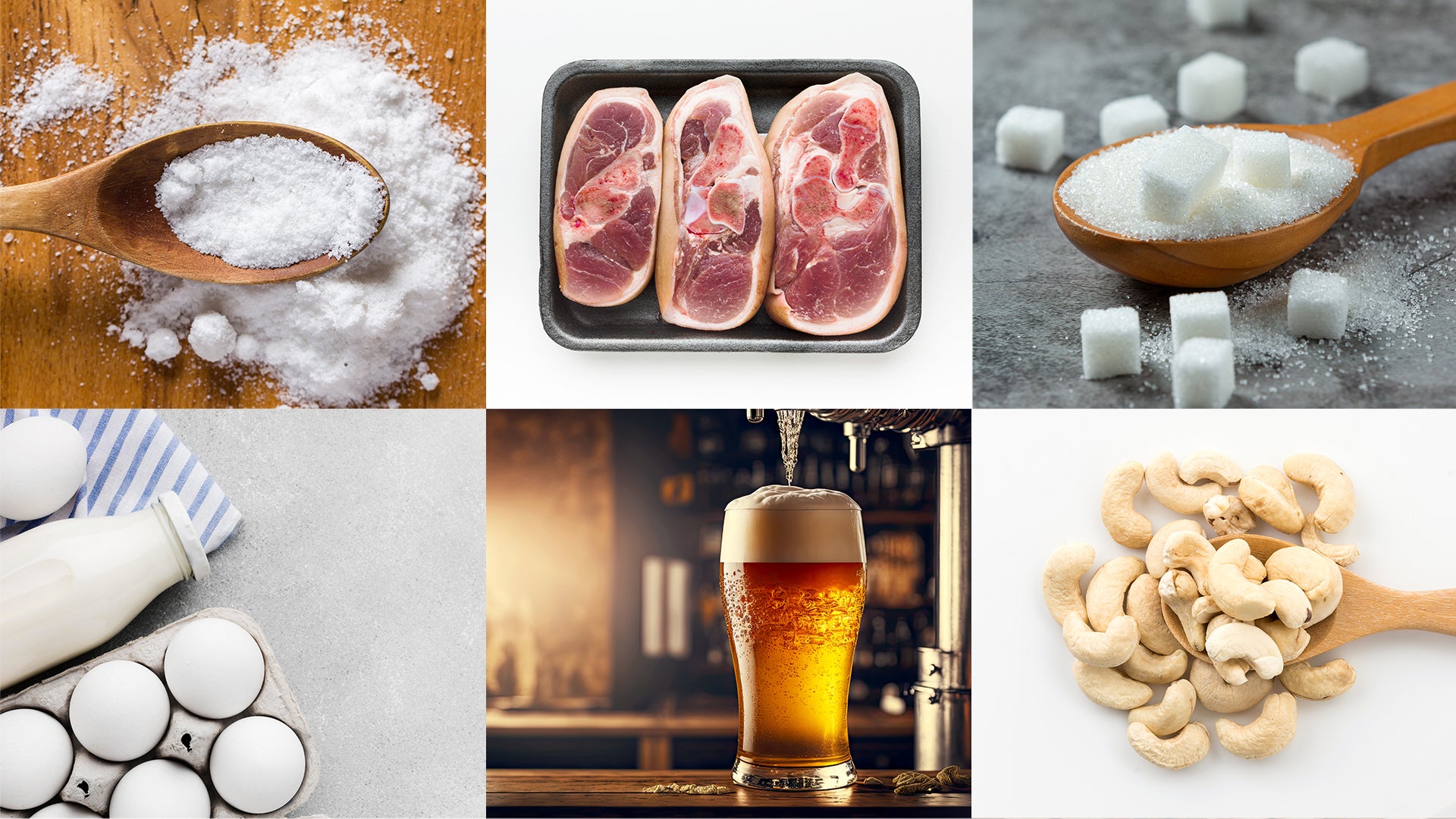Have you ever experienced unexplained fatigue, bloating, or persistent skin issues? The culprit might be lurking on your plate. Certain foods can exacerbate inflammation, the body's natural response to injury or infection, leading to a myriad of health issues.
Gut health and its intrinsic ties to inflammation and skin conditions is everywhere from Netflix shows to Tik Tok. But what foods cause inflammation in the gut and therefore your skin? In this article we unveil the foods to avoid and how to improve the health of your gut.
Understanding Inflammation
Before delving into the dietary triggers, it's essential to grasp the concept of inflammation.
While acute inflammation is a necessary defence mechanism, chronic inflammation can wreak havoc on our bodies, contributing to conditions such as arthritis, heart disease, and even skin disorders like eczema and acne.
Dietary choices play a pivotal role in either exacerbating or mitigating inflammation, making it imperative to discern which foods to embrace and which to avoid.
You can read more about what causes skin inflammation on the face.
Foods that cause inflammation: Healthy swaps to make
1. Refined Sugar
Found abundantly in processed foods, sugary treats, and beverages, refined sugar is a notorious instigator of inflammation. Consuming excess sugar triggers the release of inflammatory messengers called cytokines, exacerbating inflammation throughout the body.
Alternatives: Try having a piece of fruit or using dried fruit to satisfy the sugar craving when it arrives.
2. Trans Fats
Often lurking in fried foods, margarine, and commercially baked goods, trans fats raise harmful cholesterol levels and promote inflammation. These artificial fats disrupt cellular function and trigger an inflammatory response within the body.
Alternatives: Try having nut butters on wholegrain toast instead of layering margarine or butter.
3. Processed Meats
Deli meats, sausages, and bacon are laden with preservatives, additives, and high levels of saturated fats, all fuel inflammation. Additionally, the high salt content in processed meats can contribute to water retention and systemic inflammation.
Alternatives: Try having white meats or fish instead of processed meats or having these treats in smaller quantities.
4. Refined Carbohydrates
White bread, pasta, and pastries made from refined grains lack fibre and essential nutrients, causing a rapid spike in blood sugar levels. This surge in blood sugar triggers the release of inflammatory markers, perpetuating the cycle of inflammation within the body.
Alternatives: Whole grain foods such as whole grain pasta and bread and swapping white rice for quinoa or couscous are easy alternatives to make.
5. Dairy Products
While dairy can be a significant source of calcium and protein, individuals may experience inflammation in response to lactose or casein, two proteins found in dairy products.
Alternatives: Plenty of dairy alternatives are on the market, such as almond milk and coconut yoghurt.
Other changes to make to reduce inflammation from diet
You can permanently remove things from your diet and make simple swaps to reduce inflammation. But you can also add things in. The addition of specific vitamins, minerals and nutrients can help tackle inflammation.
Red Algae is proven to reduce inflammation and improve the state of your gut when ingested. At Seacra, we’ve created a Collagen + Red Algae Glow Shot that can improve the state of your gut by reducing inflammation, improving the appearance of fine lines and wrinkles, and giving you the coveted glow.
Red Algae and Inflammation
Our Glow Shot is a once-daily, tasty drink that replaces naturally lost collagen and is rich in vitamins, minerals, and nutrients. If you’re looking into foods that cause inflammation, our Glow Shot could be the perfect addition to your diet to help reduce inflammation and improve gut health further.
Some benefits of the Glow Shot:
- Anti-Inflammatory Properties. Along with boosting your immune system, astaxanthin may also help to reduce inflammation. This pigment acts on reactive oxygen species to minimise proteins that can cause inflammatory diseases like celiac disease, rheumatoid arthritis, heart disease, and diabetes.
- Immune System Support. Astaxanthin can influence your immune system, helping to activate white blood cells (T-cells) and natural killer (NK) cells. While T-cells attack foreign cells based on antigen markers, NK cells don't require activation and work faster to stop invasions that can weaken your health.
- Antioxidant Activity. Astaxanthin can help curb oxidative stress in several body parts by neutralising free radicals. This is the holy grail in the way antioxidants help prevent disease. Oxidative stress plays a crucial role in human skin ageing and dermal damage. The mechanisms of intrinsic (chronological) and extrinsic (photo-) ageing include the generation of reactive oxygen species (ROS) via oxidative metabolism and exposure to sun ultraviolet (UV) light, respectively. Thus, the formation of ROS is a pivotal mechanism leading to skin ageing. Astaxanthin inhibits ROS formation and modulates the expression of oxidative stress-responsive enzymes.
You can shop for collagen glow shots in red algae collagen glow shots.




